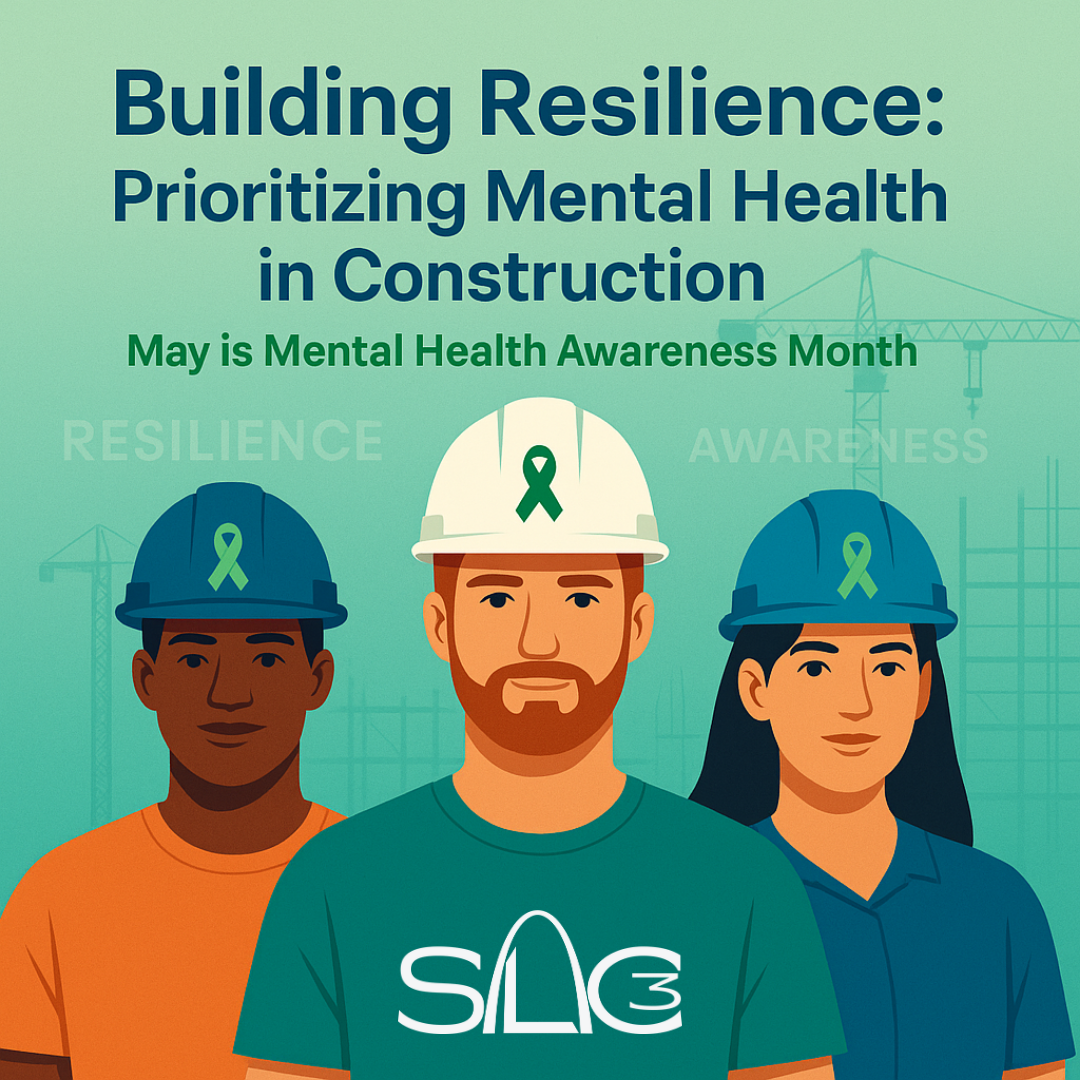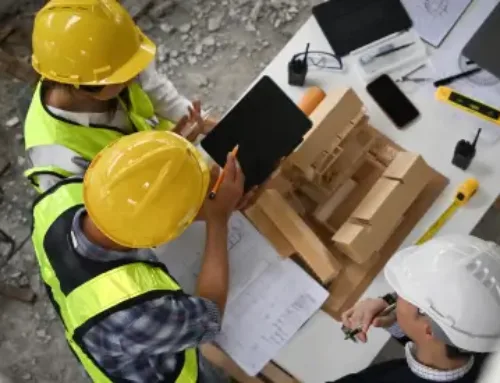Building Resilience: Prioritizing Mental Health in Construction During Mental Health Awareness Month
Laying the Foundation for Mental Wellness
May marks Mental Health Awareness Month—a time to spotlight a critical yet often overlooked component of workplace safety: mental well-being. In the construction industry, where physical hazards are routinely addressed, mental health challenges remain prevalent and pressing. Recognizing and addressing these issues is essential for fostering a resilient and productive workforce.
Understanding the Mental Health Landscape in Construction
The construction sector faces significant mental health challenges. A 2020 study revealed that 83% of construction workers have experienced a mental health issue, underscoring the widespread nature of the problem. Furthermore, the industry ranks second highest in suicide rates among major industries, with over 5,000 construction workers dying by suicide each year, five times more than the annual number of jobsite fatalities. Constructible+1PBC Today+1National Academies+1Workplace Mental Health – Home+1
Identifying Contributing Factors
Several factors contribute to the mental health crisis in construction. The industry’s male-dominated culture often stigmatizes mental health discussions, viewing them as a sign of weakness. Additionally, long hours, job insecurity, physical strain, and exposure to hazardous conditions exacerbate stress and anxiety. These elements create an environment where mental health issues can thrive if unaddressed.
Barriers to Seeking Help
Despite the high prevalence of mental health issues, many construction workers do not seek professional help. Studies indicate that only 17% of industry workers would comfortably and openly discuss mental health issues with a supervisor. This reluctance is often due to stigma, fear of job loss, and a lack of awareness about available resources. Moreover, fewer than 5% of construction workers reported seeing a mental health professional, compared with 22% of all U.S. adults. HomeKFF Health News
Promoting a Culture of Support
Addressing mental health in construction requires a multifaceted approach. Employers can implement mental health training, provide access to counseling services, and foster an environment where open discussions are encouraged. Peer support programs and mental health awareness campaigns can also play a vital role in normalizing conversations around well-being. One crucial step is making resources easy to access. Organizations like the Construction Industry Alliance for Suicide Prevention (CIASP) and the National Suicide Prevention Lifeline (call or text 988) offer confidential support. Some employers also offer Employee Assistance Programs (EAPs), which can connect workers with mental health professionals at no cost. By integrating mental health into safety protocols and providing clear paths to help, we can take significant strides toward a healthier, more resilient workforce.
Conclusion: Building a Healthier Future
Mental Health Awareness Month reminds us of the importance of psychological well-being in the construction industry. By acknowledging the challenges and actively working to create supportive environments, we can ensure that mental health becomes an integral part of workplace safety. Together, we can build not only structures but also a culture that values and protects the mental health of every worker.
Author: SLC3






